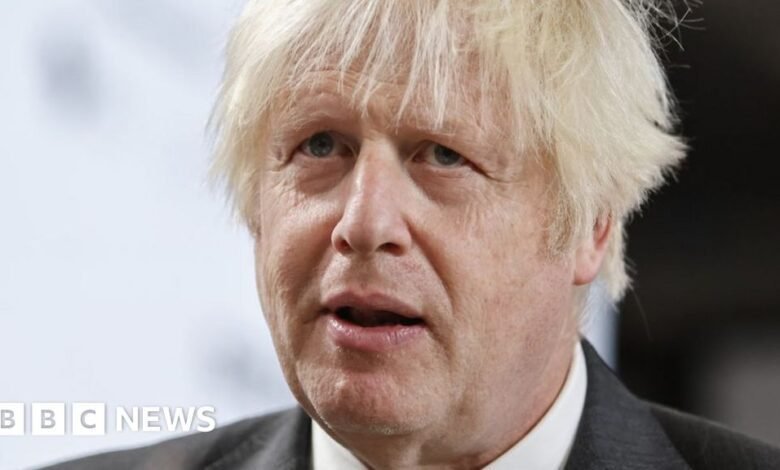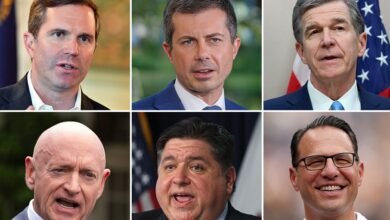Boris Johnson walked away from the polling station after forgetting his ID

- By Becky Morton
- Political reporter
Image source, Getty Images
Former Conservative Prime Minister Boris Johnson was turned away from his local polling station after forgetting to bring acceptable photo ID.
As first reported by Sky News, he later returned with the necessary ID and was able to vote.
He voted in South Oxfordshire, where voters are choosing a police and crime commissioner.
New rules requiring photo identification to vote were introduced by Mr Johnson’s government in the 2022 Electoral Act.
The change was implemented last year, with local elections in May 2023 being the first time voters have been required to present ID.
According to the Electoral Commission, around 14,000 people were unable to vote in last year’s local elections in England as a result of the new rules.
The government also said it intends to make veterans’ ID cards a valid form of voter identification, after some former employees were removed from polling stations.
Army veteran Adam Diver, 48, said he felt “gutted” when he was turned away from a polling station in Fleetwood, Lancashire, after producing his veteran ID card.
Diver, who served in the Army for 27 years, said he felt as if his service had been “invalidated” when his card was rejected.
“I thought you could use it as an ID card. It’s like a driver’s license, you can’t get it more officially,” he said.
Veterans Minister Johnny Mercer apologized to Mr Diver on social media.
“Legislation on acceptable forms of identification was published before veterans’ identification cards began to be published in January of this year,” he wrote.
“I’ll do everything I can to change it before the next one.”
A No 10 spokeswoman said: “It is our intention that the new Veterans Card, launched in January, will be added to the official list.”
The government is consulting on adding the card to the list of acceptable voter IDs, which already includes armed forces identity cards.
Meanwhile, Conservative MP Tom Hunt said his dyspraxia caused him to lose his passport and he had to organize an emergency proxy vote.
Hunt, who represents Ipswich, said he doesn’t want to “blame everything on my dyspraxia” but it is “well known that, unfortunately, we are a little more likely to lose things”.
He warned people who “stalk” him online to be “very careful with their words.”
People can request an emergency proxy vote up until 5pm on voting day if their ID has been lost, stolen or damaged.
Asked about reported problems with voter ID, Transport Secretary Mark Harper said “it is inevitable that there will be, when millions of people vote, a small number of issues”.
However, he said he believed “the majority of voters found it perfectly simple to vote with the required ID across the country.”
Asked about Johnson’s refusal, Northern Ireland Secretary Chris Heaton-Harris, who served as his boss, told BBC radio: “As someone who knows Boris well, I can’t say this completely surprises me… I I know he just went home, got an ID, went back to the polling place and voted Conservative.”
The Election Commission said “the majority of voters who wanted to vote were able to do so” despite voter ID requirements.
“We will now begin collecting evidence from voters, election administrators, partner organizations and activists to understand their experiences of the elections and identify any potential barriers to participation,” a spokesperson said.
Electoral Commission chief executive Vijay Rangarajan told BBC Radio 4’s Today program that large-scale campaigns to raise awareness of the rules appeared to have been successful.
Asked about the issues facing some voters, he said: “It appears these are teething problems at this point, but we will evaluate this very carefully.”




